#GPS Tracking Software Development Services
Explore tagged Tumblr posts
Text
#GPS Tracking Software Development Company#GPS Tracking Software Development Services#GPS Tracking Software Development#Custom GPS Tracking App Development#Custom GPS Software Development
0 notes
Text
UBITracer Smart Tracking Device: Pinpoint Your Location with Triple Accuracy
1. WiFi Location with UBITracer Tracking Device: Your Urban Navigator 🌆
When surrounded by towering skyscrapers or navigating narrow streets, traditional GPS often struggles. That’s where WiFi location shines.
Benefits: Ultra-precise in urban areas, pinpointing locations with remarkable accuracy.
Use Case: Imagine delivering goods in a crowded city. WiFi location ensures your driver can identify specific buildings or businesses, even in GPS shadow zones.
2. GPS: Precision in Open Spaces 🌄
For wide-open areas like highways, rural roads, or warehouses, GPS is unbeatable.
Accuracy: Within 8 meters, smaller than the size of a standard shipping container!
Use Case: From farm fields to container yards, GPS keeps your operations running smoothly and ensures your assets are always trackable.
3. GSM Location: Always Connected, Even Off the Grid 📶
When WiFi and GPS are unavailable — think mountains, deserts, or dense forests — GSM (cellular signal) steps in as the ultimate fallback.
Reliability: Provides approximate location even in the most remote regions.
Use Case: Ideal for supply chain logistics or emergency response teams operating in challenging environments.
Seamless Switching for Uninterrupted Accuracy 🔄 Hardware
What sets UBITracer apart is its automatic switching capability. The device intelligently chooses the most effective method in real time, ensuring uninterrupted tracking accuracy regardless of your surroundings.
More Than Just Location Tracking Usages
UBITracer isn’t just about knowing where your assets are — it’s about understanding their condition too. Our Multi-Sensor GPS collects and transmits crucial data, including:
Temperature
Humidity
Acceleration
Pressure
Door Openings
This holistic approach empowers supply chain managers to monitor asset health while tracking their location.
Why Businesses Love UBITracer Quality & Security
Our clients use UBITracer to:
Ensure perishable goods stay within safe temperature ranges.
Monitor potential damage during transport through acceleration data.
Verify door openings to prevent theft or tampering.
Explore more real-world use cases at www.ubitracer.com.
Special Offer: Try UBITracer for FREE!
We’re so confident in the value of UBITracer that we’re offering a limited-time free device, along with free cellular data and access to our IoT software platform.
Here’s how to claim:
Purchase a UBITracer Multi-Sensor GPS on Amazon:
Multi-Sensor GPS — Ideal for Valuables ZS-300L
Long-Life Tracker for Temperature Monitoring ZT-28E
Send your Amazon order number and device serial number to [email protected].
Enjoy complimentary cellular data and free platform usage.
For a limited time, receive a full refund through Amazon, making this a risk-free opportunity!
Act Fast — Supplies Are Limited!
Take your IoT journey to the next level with UBITracer. Contact [email protected] today, and let us help you transform how you track and manage your assets.
Stay confident. Stay connected. 🧭
#gps tracker#iotsolutions#logistics#software#gps device#gps and navigation#iot platform#iot development services#innovation#iot applications#iot#technologynews#industrial#tracking#application#apps#supplychainsolutions#supply chain management#supply chain optimization#supplychainlogistics#supplychaininnovation#warehouse#cybersecurity
1 note
·
View note
Text
https://www.bayiotsystems.com
#gps#gps fleet tracking software uae#iot#iot app development#iot applications#iot development services#iot tech#iot platform#iotsolutions#gps fleet tracking kochi
1 note
·
View note
Text
How to Build a Custom Fleet Tracking App
This solution has become a lifeline for corporations of all sizes. Logistics companies can better manage their assets, staff, and workflow to improve the efficiency of their delivery services. Here, we help you find the best software development services in the USA. ABI Research conducted a survey that showed that nearly 50% of fleet managers believed that fleet management software was beneficial to their business. While 56% of respondents claim that this software has helped them improve their customer service. The future of the fleet management industry is bright and promising, especially when you consider that it will reach $55 billion by 2030. Is it worthwhile to try to contribute to your custom solution? This guide shows you in detail the benefits of developing bespoke GPS tracking software and fleet management software. It also shows the features and the cost to develop them. You will also quickly go through the step-by-step process of creating fleet-tracking software and decide if your business needs it.
Visit us:
#GPS tracking software#developing bespoke GPS tracking#perfectiongeeks#website development company#blockchain application development#website design services#ios app development#app development#tracking app development
0 notes
Note
After seeing your weatherbugapp reblog i installed duckduckgo and tried it.

I don't know much about technology tbh but i downloaded this app less than 30 mins ago and in that time google tried to track me 112 times?? And they tried to collect finger prints? And my first and last name? And my gender? And my country, state and city? My gps coordinates? My postal code? My network carrier? My fricking battery level for whatever reason? Can you please tell me if this is normal at all, because i'm freaking out right now. I just turned 18 and started using mobile banking and stuff and this shit scares me
Why tf does it need to know my screen density???my system volume????my charging status????? What tf are they cooking
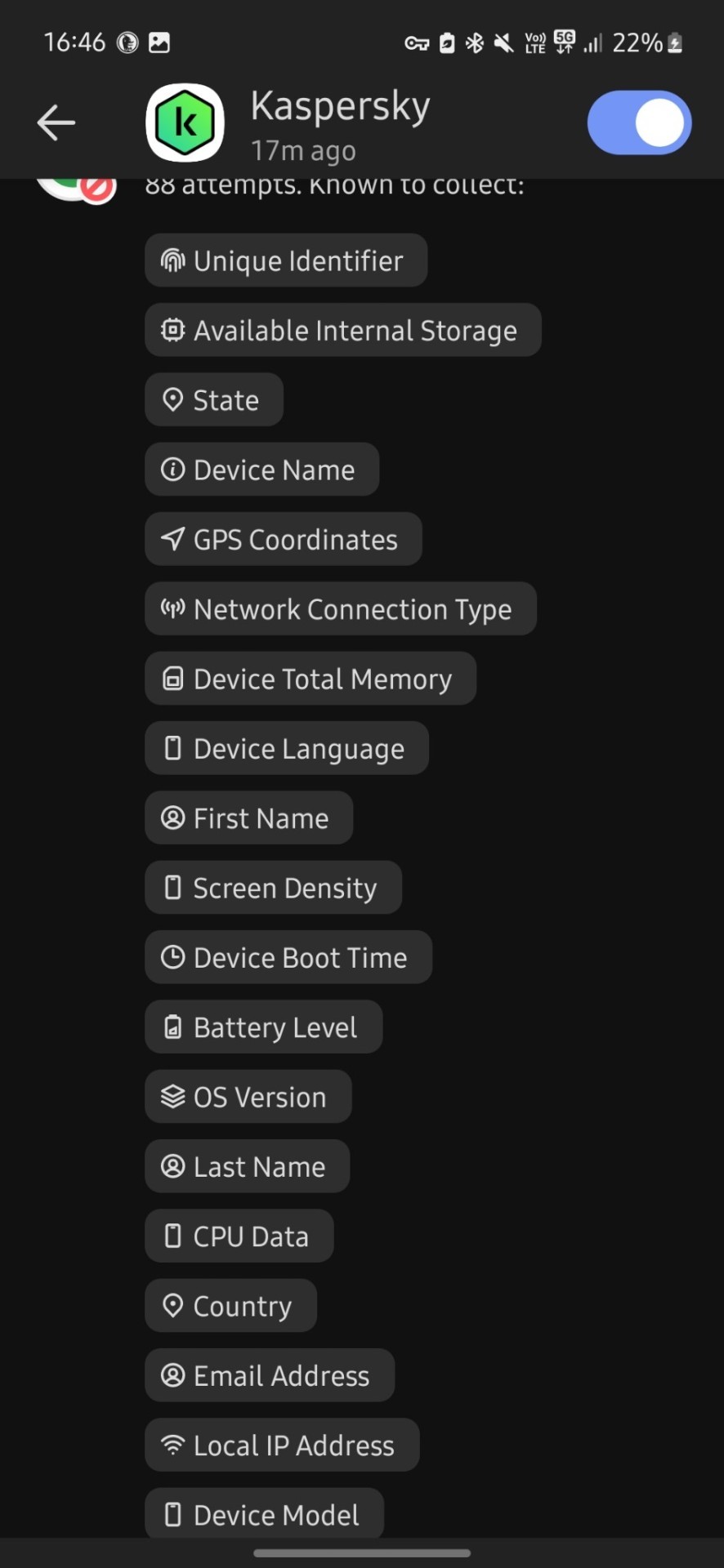
Now it's at 476 tracking attempts bro???? barely 5 mins passed.....
I condensed your three asks into one for readability!
And yeah, I'm very far from an expert about any of this, but as far as I know that's just. Normal. That's the normal amount of spying they're doing on your phone. I assume the numbers we see are to some extent because having been foiled, a lot of these scripts try repeatedly, since I can't imagine what use thousands of trackers per phone would be even to the great aggregators.
Tracking the phone stuff like screen resolution and battery level is because (apart from that definitely not being considered remotely 'private' so it's Free Real Estate) in aggregate that data can be used to track what phone use patterns are like on a demographic scale and therefore. Where the smart money is.
Almost all of this is getting sold in bulk for ad targeting and market analysis. This does presumably make it very hard to notice when like. Actually important stuff is being spied on, which is why I feel better about Having Apps with the duckduckgo app blocker thing.
My bank's app reportedly sells data to a couple aggregators including Google. Not like, my banking info, but it's still so offensive on principle that I avoid using the app unless I have to, and force stop it afterward.
The patterns that show up on the weekly duckduckgo blocker report are interesting. Hoopla attempts about two orders of magnitude more tracking than Libby, which makes sense because they're a commercial streaming service libraries pay by the unit for access, while Libby is a content management software run by a corporation that values its certification as a 'B' company--that is, one invested in the public good that can be trusted. The cleanness of their brand is a great deal of its value, so they have to care about their image and be a little more scrupulous.
Which doesn't mean not being a little bit spyware, because everything is spyware now. Something else I've noticed is that in terms of free game apps, the polished professional stuff is now much more invasive than the random kinda janky thing someone just threw together.
Back in the day you tended to expect the opposite, because spyware was a marginal shifty profit-margin with too narrow a revenue stream to be worth more to an established brand than their reputation, but now that everyone does it there's not a lot of reputation cost and refraining would be sacrificing a potential revenue stream, which is Irresponsible Conduct for a corporation.
While meanwhile 'developing a free game app to put on the game store' is something a person can do for free with the hardware they already have for home use, as a hobby or practice or to put on their coding resume. So while such apps absolutely can be malicious and more dangerous when they are than The Big Brand, they can also be neutral in a way commercial stuff no longer is. Wild world.
But yeah for the most part as far as I can make out, these are just The Commercial Panopticon, operating as intended. It's gross but it probably doesn't indicate anything dangerous on an individual level.
56 notes
·
View notes
Text

NASA and Italian Space Agency test future lunar navigation technology
As the Artemis campaign leads humanity to the moon and eventually Mars, NASA is refining its state-of-the-art navigation and positioning technologies to guide a new era of lunar exploration.
A technology demonstration helping pave the way for these developments is the Lunar GNSS Receiver Experiment (LuGRE) payload, a joint effort between NASA and the Italian Space Agency to demonstrate the viability of using existing GNSS (Global Navigation Satellite System) signals for positioning, navigation, and timing on the moon.
During its voyage on an upcoming delivery to the moon as part of NASA's CLPS (Commercial Lunar Payload Services) initiative, LuGRE would demonstrate acquiring and tracking signals from both the U.S. GPS and European Union Galileo GNSS constellations during transit to the moon, during lunar orbit, and finally for up to two weeks on the lunar surface itself.
The LuGRE payload is one of the first demonstrations of GNSS signal reception and navigation on and around the lunar surface, an important milestone for how lunar missions will access navigation and positioning technology.
If successful, LuGRE would demonstrate that spacecraft can use signals from existing GNSS satellites at lunar distances, reducing their reliance on ground-based stations on the Earth for lunar navigation.
Today, GNSS constellations support essential services like navigation, banking, power grid synchronization, cellular networks, and telecommunications. Near-Earth space missions use these signals in flight to determine critical operational information like location, velocity, and time.
NASA and the Italian Space Agency want to expand the boundaries of GNSS use cases. In 2019, the Magnetospheric Multiscale (MMS) mission broke the world record for farthest GPS signal acquisition 116,300 miles from the Earth's surface—nearly half of the 238,900 miles between Earth and the moon. Now, LuGRE could double that distance.
"GPS makes our lives safer and more viable here on Earth," said Kevin Coggins, NASA deputy associate administrator and SCaN (Space Communications and Navigation) Program manager at NASA Headquarters in Washington. "As we seek to extend humanity beyond our home planet, LuGRE should confirm that this extraordinary technology can do the same for us on the moon."
Reliable space communication and navigation systems play a vital role in all NASA missions, providing crucial connections from space to Earth for crewed and uncrewed missions alike. Using a blend of government and commercial assets, NASA's Near Space and Deep Space Networks support science, technology demonstrations, and human spaceflight missions across the solar system.
"This mission is more than a technological milestone," said Joel Parker, policy lead for positioning, navigation, and timing at NASA's Goddard Space Flight Center in Greenbelt, Maryland.
"We want to enable more and better missions to the moon for the benefit of everyone, and we want to do it together with our international partners."
The data-gathering LuGRE payload combines NASA-led systems engineering and mission management with receiver software and hardware developed by the Italian Space Agency and their industry partner Qascom—the first Italian-built hardware to operate on the lunar surface.
Any data LuGRE collects is intended to open the door for use of GNSS to all lunar missions, not just those by NASA or the Italian Space Agency. Approximately six months after LuGRE completes its operations, the agencies will release its mission data to broaden public and commercial access to lunar GNSS research.
"A project like LuGRE isn't about NASA alone," said NASA Goddard navigation and mission design engineer Lauren Konitzer. "It's something we're doing for the benefit of humanity. We're working to prove that lunar GNSS can work, and we're sharing our discoveries with the world."
The LuGRE payload is one of 10 science experiments launching to the lunar surface on this delivery through NASA's CLPS initiative.
Through CLPS, NASA works with American companies to provide delivery and quantity contracts for commercial deliveries to further lunar exploration and the development of a sustainable lunar economy. As of 2024, the agency has 14 private partners on contract for current and future CLPS missions.
Demonstrations like LuGRE could lay the groundwork for GNSS-based navigation systems on the lunar surface. Bridging these existing systems with emerging lunar-specific navigation solutions has the potential to define how all spacecraft navigate lunar terrain in the Artemis era.
The payload is a collaborative effort between NASA's Goddard Space Flight Center and the Italian Space Agency.
8 notes
·
View notes
Text
GIS In Our Daily Lives
The involvement of Geographic Information Systems (GIS) in our daily lives is pervasive, influencing and enhancing various aspects across different sectors. The integration of GIS into everyday activities has become integral for decision-making, planning, and optimizing resources. GIS helps city planners and transportation experts to provide them with information like maps, satellite pictures, population statistics, and infrastructure data. GIS helps them make better decisions when designing cities and transportation systems that are sustainable and good for the environment.
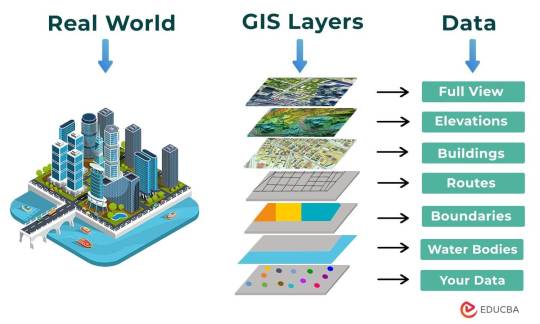
The following points elucidate the notable involvement of GIS in our daily lives:
Navigation and Location Services: GIS provides monitoring functions through the visual display of spatial data and precise geographical positioning of monitored vehicles, whereas GPS provides accurate, clear, and precise information on the position and navigation of a monitored or tracked vehicle in real-time and at the exact location.GIS is at the core of navigation applications and location-based services on smartphones. It enables accurate mapping, real-time navigation, and geolocation services, assisting individuals in finding locations, planning routes, and navigating unfamiliar areas.
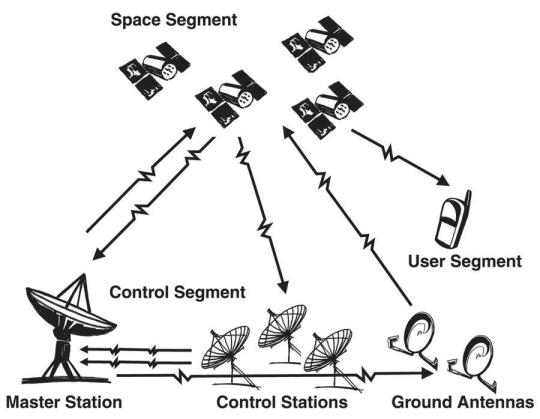
E-Commerce and Delivery Services: GIS software is a powerful tool for supply chain network planning. It helps determine the optimal location for distribution centers, warehouses, or other supply facilities. GIS is utilized in logistics and delivery services for optimizing routes, tracking shipments, and ensuring timely deliveries. E-commerce platforms leverage GIS to enhance the efficiency of their supply chain and last-mile delivery processes.
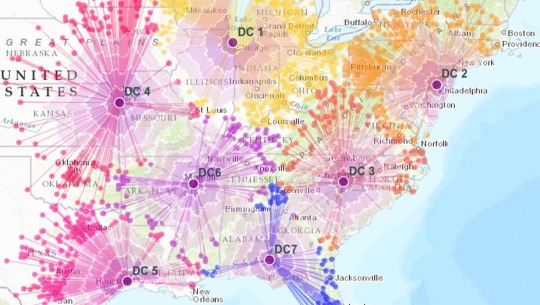
Weather Forecasting and Disaster Management: Many states are using GIS dashboard to monitor the rainfall across the state, on a real-time basis, from the data shared by rain sensors installed at various locationsGIS plays a crucial role in weather forecasting and disaster management. It assists meteorologists in analyzing spatial data, predicting weather patterns, and facilitating timely responses to natural disasters by mapping affected areas and coordinating emergency services.
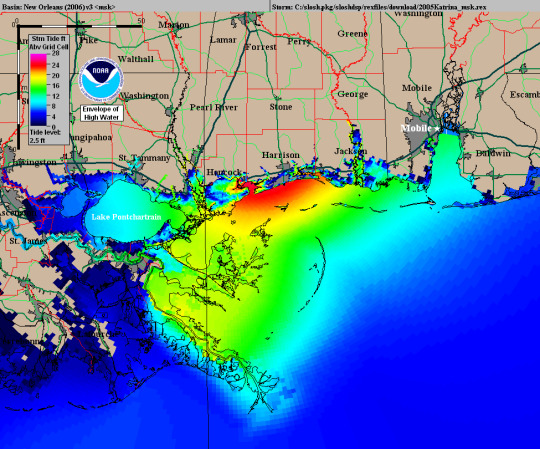
Healthcare Planning and Disease Monitoring: Geographic Information Systems enable the visualization and monitoring of infectious diseases. Additionally GIS records and displays the necessary information that health care needs of the community as well as the available resources and materials. GIS supports public health initiatives by mapping the spread of diseases, analyzing healthcare resource distribution, and assisting in the planning of vaccination campaigns. It aids in identifying high-risk areas and optimizing healthcare service delivery.
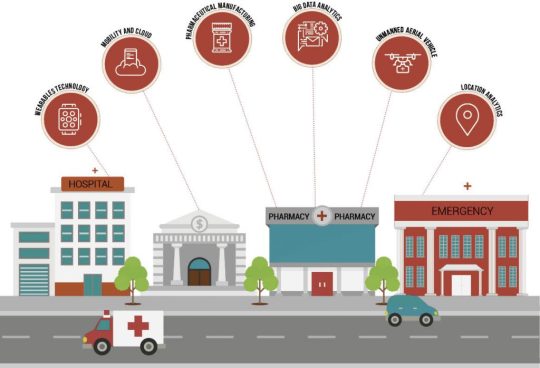
Social Media and Geo-tagging: GIS also helps in geotagging and other location related information in posts, it’s tools can map and visualize the spatial distribution of social media activity. This analysis can reveal trends, hotspots, and patterns in user engagement across different geographic areas. Many social media platforms incorporate GIS for geo-tagging, allowing users to share their location and experiences. This feature enhances social connectivity and facilitates the sharing of location-specific information.
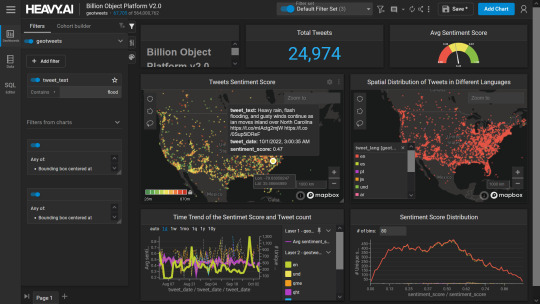
Smart City Initiatives: The Geographic Information System (GIS) offers advanced and user-friendly capabilities for Smart City projects and allows to capture, store and manipulate, analyze and visualize spatially referenced data. It is used for spatial analysis and modeling. It is the cornerstone of smart city planning, enabling the integration of data for efficient urban management. It supports initiatives related to traffic management, waste disposal, energy consumption, and overall infrastructure development.
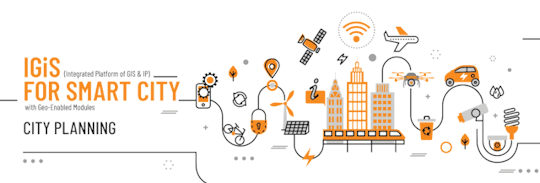
Education and Research: GIS is increasingly utilized in education and research for visualizing and analyzing spatial data. It enables students and researchers to explore geographic relationships, conduct field studies, and enhance their understanding of various subjects.

Agricultural Management and Precision Farming: Farmers leverage GIS to optimize agricultural practices by analyzing soil conditions, crop health, and weather patterns. Precision farming techniques, facilitated by GIS, contribute to increased crop yields and sustainable farming practices.
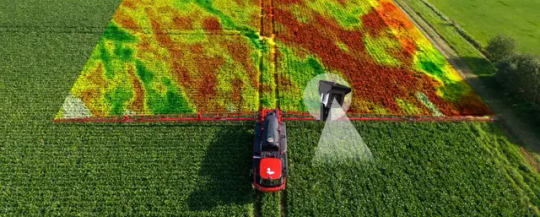
Real Estate and Property Management: In the real estate sector, GIS aids in property mapping, land valuation, and site selection. It provides real estate professionals with valuable insights into spatial relationships, market trends, and optimal development opportunities.
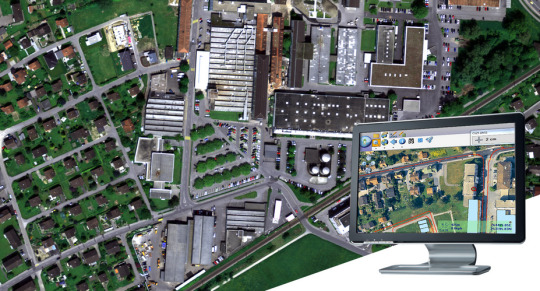
Tourism and Recreation: GIS enhances the tourism industry by providing interactive maps, route planning, and location-based information. It assists tourists in exploring destinations, finding attractions, and navigating efficiently.
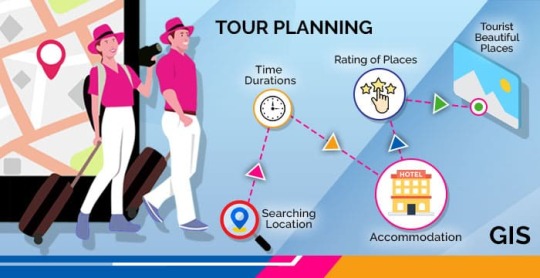
The broad and varied involvement of GIS in our daily lives underscores its significance as a technology that not only facilitates geographic data analysis but also contributes to the efficiency, safety, and interconnectedness of modern society. As GIS applications continue to evolve, their impact on daily activities is expected to further expand and refine.
#gis#architectdesign#architecture#city#education#geographic information system(gis)#geographical indication
13 notes
·
View notes
Text
As a trucker, you can perform various tasks within truck dispatching:
*Primary Responsibilities:*
1. Receive and accept load assignments from dispatchers.
2. Review load details, routes, and schedules.
3. Plan and navigate routes using GPS and maps.
4. Manage cargo, including loading/unloading and securement.
5. Comply with safety regulations, hours of service, and company policies.
6. Communicate with dispatchers, shippers, and receivers.
7. Update dispatchers on shipment status and any issues.
*Additional Tasks:*
1. Pre-trip inspections: ensure vehicle safety and compliance.
2. Fuel management: optimize fuel efficiency and costs.
3. Maintenance scheduling: coordinate vehicle maintenance.
4. Logkeeping: maintain accurate records of hours, miles, and cargo.
5. Customer service: interact with shippers, receivers, and brokers.
6. Route optimization: suggest alternative routes or improvements.
7. Load optimization: maximize cargo capacity and revenue.
*Technology Used:*
1. Electronic Logging Devices (ELDs)
2. GPS tracking systems
3. Mobile apps (e.g., Trucker Path, TruckStop)
4. Fleet management software (e.g., TMW, McLeod)
5. Communication platforms (e.g., phone, email, messaging apps)
*Skills Required:*
1. Knowledge of transportation regulations
2. Navigation and route-planning skills
3. Time management and organization
4. Communication and customer service skills
5. Mechanical knowledge of trucks and equipment
6. Adaptability and problem-solving
7. Attention to detail and safety protocols
*Career Advancements:*
1. Lead driver or mentor
2. Fleet manager
3. Safety inspector
4. Dispatch coordinator
5. Logistics manager
6. Owner-operator or small fleet owner
7. Transportation consultant
*Benefits:*
1. Competitive pay and benefits
2. Job security and stability
3. Opportunities for advancement
4. Independence on the road
5. Variety in routes and cargo
6. Sense of accomplishment and satisfaction
Would you like more information on:
1. Trucking regulations
2. Dispatching software
3. Career development
4. Safety protocols
5. Something else
Let me know!
2 notes
·
View notes
Text
What is Enterprise Fleet Management?
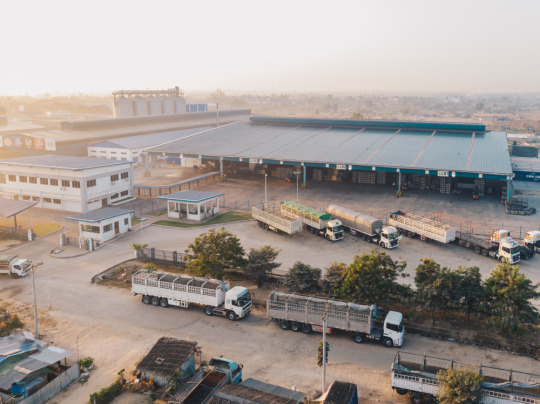
As is revealed in today’s world business environment, any organization must manage its resources appropriately. Thus, for companies and firms having major operations related to transportation and logistics, it becomes even more essential to manage their fleets.
Now, let’s start with the basics: what does enterprise fleet management mean? Now let’s discuss this idea and figure out how it can be of great benefit to the business processes.
Understanding what is Enterprise Fleet Management
Fleet management within an enterprise could be described as a strategic approach to managing and supervising such a company's vehicle fleet. The areas include its acquisition and maintenance, driver and vehicle management, and laws governing the automobile industry. Fleet management is prospective to optimize the operating costs and enhance the safety and productivity of both fleets and their drivers.
In an enterprise environment, fleet management goes beyond tracking the vehicles; it is more about getting improved ways of running organizations. Fleet management is important irrespective of whether it involves delivery vans, trucks, or even corporate cars if the business owns a set of cars for business use.
The outcome highlights the fundamental issues of fleet management.
Vehicle Acquisition and Disposal: Picking the correct car for your fleet, beginning from procurement to the time of disposal.
Maintenance and Repair: Managing to schedule vehicles for maintenance and repairs regularly to make sure that they are in good working condition to reduce time loss.
Fuel Management: Fuel efficiency management by controlling consumption and considering these to minimize fuel expenses by using fuel-efficient driving techniques and other energy resources.
Driver Management: Incorporating training and supervision of drivers as well as planning meals nt to support safety, compliance, and efficiency among the drivers.
Compliance and Risk Management: The safety of all the used vehicles as well as the used drivers with brutal and international requirements and managing of risk exposures of operating fleets.
Here we will discuss the concept of Fleet Management Software. Inefficiently managing all these components, many businesses turn to the use of fleet management software. This is because it acts as a platform for accessing any information regarding the fleet, including real-time data and automated operations of the fleet.
Key Features of Fleet Management Software
GPS Tracking: Precise vehicle location in real-time to increase efficiency and controllers.
Maintenance Scheduling: Schedule reminders in case of preventive maintenance and repairs to avoid ‘bottlenecks Management: Proper equipment that tracks fuel usage and gives an indication of wasteful activities.
Compliance Management: Material properties garages need to comply with set safety measures as well as regulatory requirements.
Driver Performance Monitoring: Measures to monitor and measure drivers’s performance, detect their training requirements, and incentivize them over safe behavior on roads.
Why Enterprise Fleet Management is So Important
To large companies, fleet management is not only limited to planning on how to ensure that vehicles are running. It’s about being able to harness data and technology in a way that will put you ahead of the competition. Effective management of fleets is known to have numerous benefits, such as cutting costs, satisfying customers, and reducing risks involving drivers and cars, among others.
However, due to emerging issues such as global warming, companies are now focusing on the use of fleets to be environmentally friendly. This is done through the optimization of routes, timely maintenance of vehicles, and training of the drivers to ensure they are conscious of the impact they make on the environment.
Being a web-based service, the most advantageous aspect related to an FMS or a Fleet Management Software Development Service is that it can be easily and effectively utilized across the corporate fleet range.
This has led to the increasing need for the development of fleet management software to be able to meet the expanding market need. Custom software, as the name suggests, is designed to improve organizational operations to suit a company’s needs, making it more flexible than packaged software.
A fleet management software development service typically includes
Consultation and Needs Assessment: Ah, awareness of the particular requirements and objectives of your fleet. You need to hire a professional fleet management software development company.
Custom Software Development: Constructing a custom fit that incorporates into the complex structures of the organization and fits the needs of the organization perfectly.
Integration with IoT Devices: The use of Internet of Things (IoT) devices such as GPS trackers or sensors to input real-time information and data.
Ongoing Support and Maintenance: Needed to make sure the software will continue to include all the features and incorporate the latest technologies and that it will cover all current needs of the business.
Conclusion
Okay, then, Fleet management is a system that encompasses all activities that involve control of a company’s fleet of vehicles with the use of the latest technologies in software and quality practices. Fleet management is not only a good idea but a necessity for any business that depends on transportation, where proper management of the company’s fleet is critical to achieving success.
Let it be a handful of vehicles or a multitude, the appropriate strategy in fleet management as enhanced by software changes the equation, provides steps towards optimizing your operations, lowers costs, and enhances the performance of an organization. The fast advancement of technology means that the means and ways used in the implementation of the strategies by the f managers are ever-changing and therefore a very promising industry to follow.
#business growth#fleet management#fleet maintenance#enterprise software#enterprise application development#business solutions#software#trending#viralpost#viral trends
2 notes
·
View notes
Photo
[Image ID]
A series of tweets from Robert G. Reeve (username RobertGReeve). Tweets read:
I'm back from a week at my mom's house and now I'm getting ads for her toothpaste brand, the brand I've been putting in my mouth for a week. We never talked about this brand or googled it or anything like that.
As a privacy tech worker let me explain why this is happening. (thread emoji)
First of all, your social media apps are not listening to you. This is a conspiracy theory. It's been debunked over and over again.
But frankly they don't nee to because everything else you give them unthinkingly is is way cheaper and way more powerful.
Your apps collect a ton of data from your phone. Your unique device ID. Your location. Your demographics. We know this.
Data aggregators pay to pull in data from EVERYWHERE. When I use my discount card at the grocery story? Every purchase? That's a dataset for sale.
They can match my Harris Teeter purchase to my twitter account because I gave both those companies my email address and phone number and I agreed to all that data-sharing when I accepted those terms of service and the privacy policy.
Here's where eit gets truly nuts, though.
If my phone is regularly in the same GPS location as another phone, they take note of that. They start reconstructing the web of people I'm in regular contact with.
The advertisers can cross-reference my interests and browsing history and purchase history to those around me. It starts to show ME different ads based on the people AROUND me.
Family. Friends. Coworkers.
It will see me ads for things I DON'T Want, but I knows that someone I'm in regular contact with might want.
To subliminally get me to start a conversation about, I don't know, fucking toothpaste.
It never needed to listen to me for this. It's just comparing aggregated metadata.
So. They know my mom's toothpaste. The know I was at my mom's. They know my Twitter. Now I get Twitter ads for mom's toothpaste.
Your data isn't just about you. It's about how it can be used against every person you know, and people you don't. To shape behaviour unconsciously.
Apple's latest updates block app's tracking and Facebook is MAD. They're BEGGING you to just press accept and go back to business as usual.
Block the fuck of of every app's ads. It's not about you:your data shapes the Internet.
[End image ID]
Apart from clicking 'do not accept', what else can you do about it?
Firstly, I'm going to plug Firefox as the only non-Chrome based Browser out there. Chrome is made by Google/Alphabet and Alphabet is an advertising company. Most, if not all, big tech companies are.
Then I'm going to plug some plugins. If you don't know what plugins are, now is a great time to learn! They're small pieces of extra software that run on top of (plug in to) an existing app. They're also called extensions (because they extend the app's functionality).
Here's what I use to keep my data mine:
HTTPS Everywhere
An HTTPS connection means the website you're visiting hasn’t been modified before it loaded and that any data you submit to that website can’t be seen by anyone else. HTTPS Everywhere is an extension/plugin made by the nonprofit group the Electronic Frontier Foundation, and it automatically loads websites over HTTPS wherever that's an option.
(nb: Firefox enables this by default in Private Browsing mode and has an option to force HTTPS connections in regular mode in its Privacy and Security menu)
Privacy Badger
Another EFF extension, Privacy Badger blocks invisible third-party trackers on websites. It looks at all the components of a web page, learns which ones track you across the internet, then stops them from loading.
Notably, it only blocks ads that don't respect Do Not Follow headers, which is an option you can (and, imo, should) enable in Firefox's settings.
Privacy Possum
Privacy Possum was written by one of the developers who worked on Privacy Badger, and has some extra features, but - because tracking companies have infinitely more resources and political power than nonprofits or individual app developers - it emphasises costing tracking companies money over user protection.
Privacy Possum's main feature over Badger is "data poisoning" - it does background searches for random things to introduce junk data into your advertising profile.
uBlock Origin
Ad blockers do exactly what you'd expect from the name: they block ads from loading. Since the tracking software is often built into the ad itself that means they also block the tracking code.
Be careful with impersonators: there are a number of untrustworthy extensions that use a similar name in the hope you're not fully paying attention. Fortunately, once it's installed, you can just leave it to work in the background.
ClearURLs
Links are another way to track your movement across the Internet. You know how sometimes links look way longer than they ought to? Some of that might be data that tells the website where you came from (eg: email vs Facebook). ClearURLs removes that extra bumpf.
Multi-Account Containers
Multi-Account Containers, wich come as standard in Firefox, help to isolate your browsing activity. You can have one container for work tabs, and another for online banking, another for social media - and nothing in any of those tables will be able to track anything in any other. You can also have multiple accounts for the same website open in different containers, so you don't need to log in and out all the time, and you can put known arsehole sites like Facebook or Twitter in a container, so it can't follow you around.

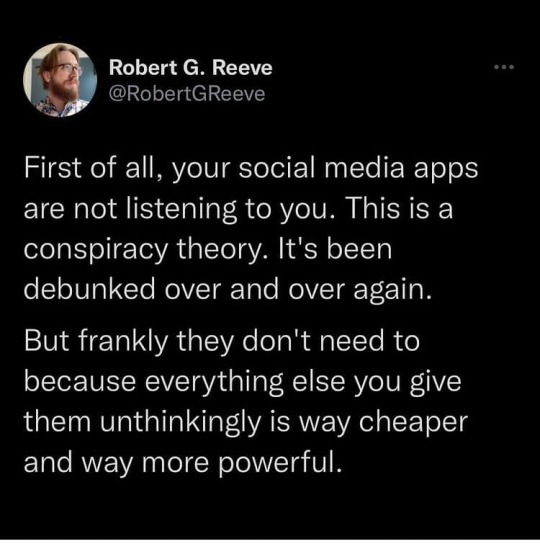

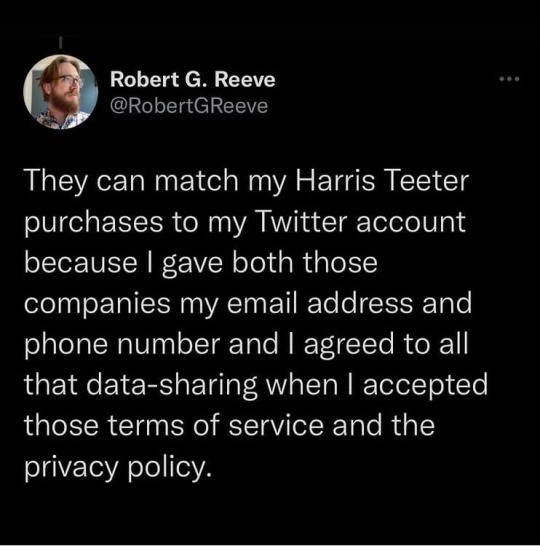
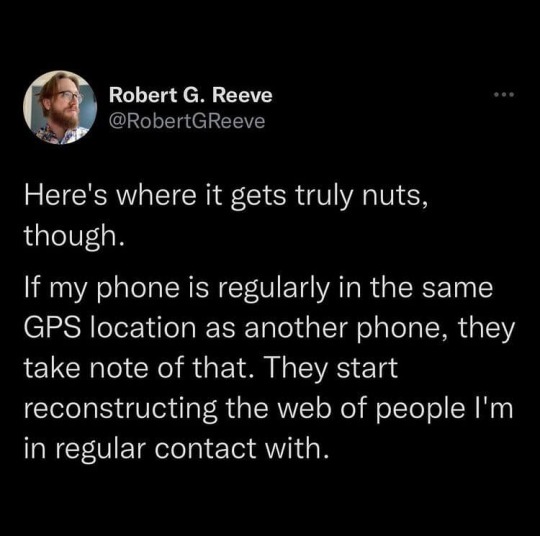
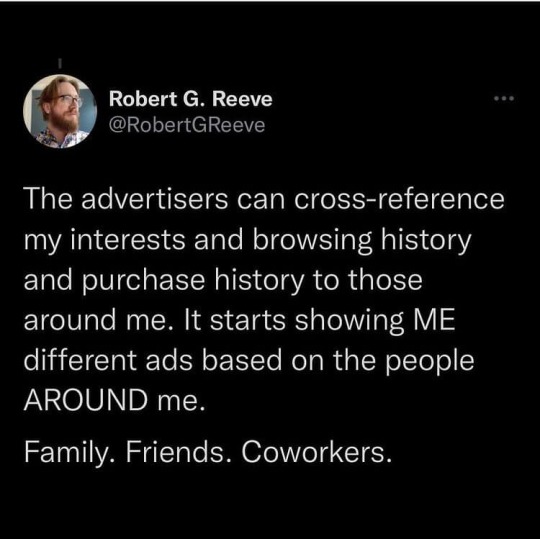
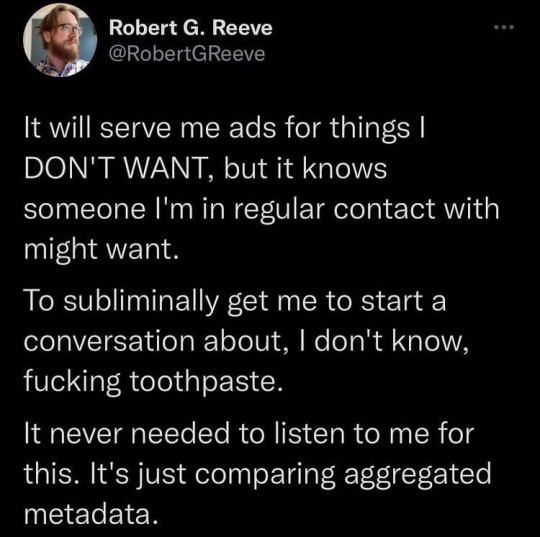
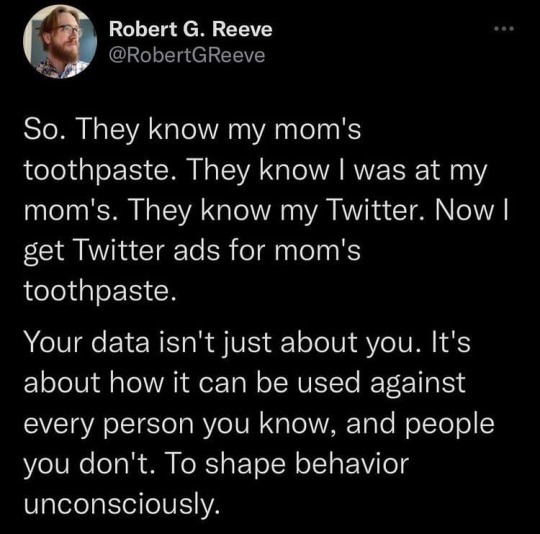
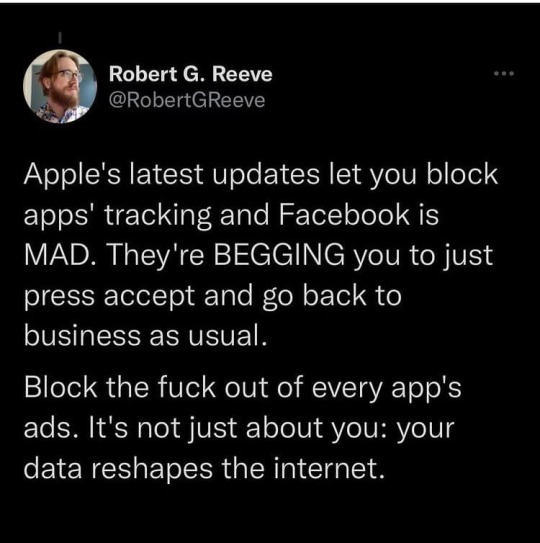
119K notes
·
View notes
Text
Top Augmented Reality Companies in India in 2025

Augmented Reality (AR) has changed industries by combining digital elements with the real world, improving user experiences in gaming, retail, healthcare, education, and more. With its growing technical ecosystem, India has seen a growth in AR innovation. By 2025, many companies will be leading the charge, offering augmented reality solutions to various clients and industries. This article will give you an overview of the top augmented reality companies in India, as well as some information related to augmented reality is also discussed below.
List of Top Augmented Reality Companies
Various companies in India were providing services related to augmented reality, but a few top companies, like Abhiwan Technology and many other companies, were providing high-quality augmented reality services to various industries as well as to global clients. Below, some companies' names were discussed, which will give you a piece of information about them.
Abhiwan Technology: It is one of the best augmented reality companies in India. This company has expertise in providing services such as AR/VR game development, game development, interactive services for game development, 3d game development, 2d game development, blockchain game development, nft game development, metaverse game development, Unreal game development, web and app development, and many more services. This company has played an important role in developing the technological sector and bringing foreign investments into India.
Imaginate: It is also a well-known augmented reality development companies in India. This company is famous for providing services such as Enterprise AR Solutions, enabling immersive 3D interactions for industries like manufacturing and healthcare, and many more services. One of the best features of this company it has an experienced team of tech developers who have delivered high-quality services to various clients.
Plutomen: It is also one of the best augmented reality companies in India. This company has specialisation in providing services such as AR-powered remote assistance and workflow automation for industries, and many more services. One of the best features of this company is its focus on providing innovative solutions by integratingthe latest technologies.
XR Labs: It is also one of the top augmented reality services providers in India. This company provides services such as AR applications for medical training and education. The Portfolio of this company is the proof that it has delivered high quality customized solutions to healthcare industries.
Challenges Faced by AR Service Provider Companies
Various industries and customers faced various challenges while integrating the services related to augmented reality. Some common challenges are mentioned below, which will give you a piece of information about them.
Cost: This is one of the most important challenges that are encountered by customers and industries while taking services from augmented reality development companies. High-budget plan requires having High-quality software and hardware, technical experts, and specialist teams. Due to all such factors, some customers cannot afford these services due to a limited budget.
Privacy: This is one of the major challenges encountered by each customer and industry because AR requires continuous access to cameras, locations, videos, and various sensitive information, which leads to the risk of leaking the user's sensitive data. Most of the India-based best augmented reality companies were using encryption techniques, only limited access to data to authorize individuals.
Technical limit: This is one of the common issues that are encountered when obtaining accurate data related to GPS location, environmental information and regular tracking of movements. This challenge can be overcome using high -speed networks and high quality devices.
What is the main purpose of AR?
The main purpose of the AR is to provide a high-quality experience to users by overlaying digital information, such as images, 3D models, sounds, or text, on a physical environment. Unlike virtual reality (VR), which creates a fully immersive digital world, AR integrates digital elements into real-life experiences.AR fulfills various objectives such as improvement in user interactions,improoved learning experience, increased productivity while doing any task, and many more benefits are provided by AR.
How much does AR App Development Cost in India?
The cost of developing the application based on AR depends upon various factors such as the complexity of the app, what features are needed, 3D modeling & animations, the development team's expertise, what platform you need the AR app for, and many more factors that affect the AR app development cost. The cost of making a basic AR app is ₹1–5 lakhs, while the cost of developing a mid-level AR App is ₹5–10 lakhs, and the cost of developing an advanced AR app is ₹15–50+ lakhs.
Conclusion
India is becoming a global leader in the Technological sector, all this is possible due to the high-quality services offered by India-based augmented reality companies like Abhiwan Technology and many other companies. As well as most of the industries, such as healthcare, education, supply chain, gaming, and many more industries have started integrating the AR services. The market data also shows that the India Augmented Reality industry i expected to reach USD 1.256 billion by 2029, which will result in bringing various opportunities such as increased innovation in AR, increased job opportunities in many sectors, and bringing foreign investments into the Indian market.
#augmented reality services#augmented reality development companies#augmented reality companies#augmented reality
0 notes
Text
How to Build a Scalable Taxi App Like Uber: Step-by-Step Guide
If you’ve ever looked at apps like Uber or Ola and thought, “I could create something like that for my business,” you're not alone—and you’re definitely not wrong. Whether you’re running a restaurant, managing a small business, or overseeing enterprise logistics, there’s real value in building a taxi booking app tailored to your needs.
When I first explored the world of Taxi Booking App Development, I was amazed at how versatile and scalable these platforms could be. So in this post, I’m breaking down exactly how I’d approach building a taxi app like Uber—from the very first idea to launching a robust, scalable platform.
Step 1: Define the Purpose of Your Taxi App
Before writing a single line of code or calling a Taxi App Developer, I always start with this question: Why am I building this app? For a restaurant, it might be offering quick transport for food delivery drivers. For a small business, it could be managing a private fleet. Enterprises? Think employee shuttles or logistics coordination.
Your "why" will shape every feature, every screen, and every decision you make moving forward.
Step 2: Map Out the Key Features
Once I know the purpose, I outline the essential features. A good taxi booking app typically includes:
Real-time GPS tracking
Easy driver and customer registration
Ride scheduling and fare calculation
In-app payments
Ratings and reviews
Push notifications
I always make sure these features are scalable so they can grow with my business. That’s where working with the right Taxi App Developer becomes crucial.
Step 3: Choose the Right Tech Stack
Now, let’s talk tech. If you’re not tech-savvy, no worries—I wasn’t either at first. But I’ve learned that using the right tools from the start makes all the difference. Your Taxi App Developer will likely use a mix of:
Frontend: React Native or Flutter (for iOS and Android)
Backend: Node.js, Python, or PHP
Database: MongoDB or Firebase
Maps & Navigation: Google Maps API or Mapbox
I like to ask developers what they specialize in, so I know I’m getting a team that can build something fast, secure, and scalable.
Step 4: Build the MVP (Minimum Viable Product)
I never try to launch with every feature under the sun. Instead, I work with my Taxi App Developer to create a basic version with just the core functionality. This lets me test the waters, get feedback from real users, and avoid blowing my entire budget upfront.
Trust me—less is more in the beginning.
Step 5: Test, Iterate, and Scale
Once the MVP is ready, I put it through its paces. I gather feedback, look for bugs, and see how real people use the app. Then I start improving. This is when Taxi Booking App Development becomes more than just software—it becomes a solution that evolves with your business.
And when everything runs smoothly? That’s when I start thinking about expanding—new cities, more users, extra features. With the right foundation, scaling becomes seamless.
Final Thoughts
Building a scalable taxi booking app isn’t just for tech giants anymore. I’ve seen restaurants use it to streamline deliveries, small businesses improve customer service, and enterprises enhance internal transportation.
The key is starting smart—knowing your purpose, working with a skilled Taxi App Developer, and focusing on real value for your users.
So if you’ve been dreaming of launching your own ride-hailing platform, I say go for it. The road to success starts with that first step—and I’ll be cheering you on from the passenger seat
0 notes
Text
How to Change Location on Life360
youtube
Life360 is a family safety and location-sharing app that helps people stay connected with their loved ones by providing real-time location tracking and various safety features.
Want to fake your location on Life360?
First, you can choose to turn on Airplane Mode or disable the location service for the Location Changer.
However, this method is only suitable for temporarily pausing Life360 location tracking and may affect normal iPhone usage. So I’ll mainly show you how to use TunesKit Location Changer to change or fake your location.
First, connect your phone to your computer and click "Start." The software will automatically detect your device. Then, follow the on-screen instructions to enable Developer Mode on your phone. The process differs slightly between iOS and Android devices, but it’s completely safe, and you can disable it immediately after use. Once enabled, you’ll enter the map interface. At this point, Life360 shows your current location, and the map reflects the same position. Now, you can click anywhere on the map to select a new location. The search bar will show the specific details of that spot. Once you click "Start Modifying," your location will change instantly with just one click. How cool is that? You can also type the location you want directly into the search bar to change your location across borders instantly.
TunesKit Location Changer also offers several ways to simulate GPS movement: Two-Spot Movement, Multi-Spot Movement, and Jump Teleport Movement. If you choose Multi-Spot Movement, you can select multiple points to create a route and set the speed of movement. Click "Start Moving," and your location on Life three sixty will follow the planned route. With Joystick Movement, click "Start Moving," and your position will change according to the direction you move the joystick. You can customize your route freely.
If you want to return to your original location, simply click this button and restart your phone. There are many more features for you to explore!
0 notes
Text
Revolutionizing Logistics: How Sonar Technologies' Transport and Logistics Management Software is Reshaping the Industry
Introduction
In the ever-evolving world of global commerce, the logistics and transportation sector forms the backbone of trade and industry. Businesses today face immense pressure to deliver faster, more efficiently, and at lower costs. With the rise in e-commerce, growing customer expectations, and the need for sustainable operations, logistics has become more complex than ever. In this context, Transport and Logistics Management Software (TLMS) has emerged as a pivotal tool for businesses aiming to optimize operations and gain a competitive edge.
Sonar Technologies, a pioneering force in digital logistics solutions, offers a state-of-the-art TLMS that addresses modern-day logistics challenges head-on. By harnessing cutting-edge technologies like artificial intelligence, machine learning, and IoT, Sonar Technologies enables organizations to streamline their transport operations, improve visibility, and drive cost efficiencies.
Understanding Transport and Logistics Management Software
Transport and Logistics Management Software is a digital solution that facilitates the end-to-end management of logistics operations. From planning and executing shipments to tracking deliveries and managing fleets, TLMS automates and optimizes every aspect of the logistics value chain.
Key components of a robust TLMS include:
Shipment planning and scheduling
Route optimization
Fleet management
Real-time tracking and tracing
Warehouse integration
Data analytics and reporting
Compliance and documentation management
By integrating these functions, a TLMS offers real-time visibility and control, helping businesses reduce delays, minimize errors, and ensure timely delivery of goods.
Sonar Technologies: A Leader in Digital Logistics Innovation
Sonar Technologies has carved a niche in the logistics software market through its focus on innovation, customization, and user-centric design. With years of experience and a deep understanding of logistics operations across industries, Sonar Technologies has developed a TLMS that is scalable, flexible, and future-ready.
What sets Sonar apart is its commitment to continuous improvement and customer satisfaction. Their software is tailored to meet the unique needs of businesses across sectors including retail, FMCG, manufacturing, pharmaceuticals, construction, and third-party logistics (3PL).
Core Features of Sonar Technologies’ Transport and Logistics Management Software
Advanced Route Optimization The TLMS uses AI-powered algorithms to plan the most efficient delivery routes. It factors in real-time traffic data, road conditions, delivery time windows, and vehicle capacities. This leads to shorter delivery times, lower fuel consumption, and improved service levels.
Real-Time Tracking and Monitoring The system provides live GPS tracking of vehicles, enabling logistics managers to monitor the exact location and status of shipments. This enhances transparency, allows for proactive issue resolution, and improves customer communication.
Automated Dispatch and Scheduling Sonar’s TLMS automates dispatching by matching orders with the most suitable vehicles and drivers. It considers multiple parameters like route, capacity, urgency, and driver availability to ensure optimal resource allocation.
Fleet and Asset Management The software offers comprehensive tools to manage fleets, including maintenance scheduling, fuel tracking, usage reports, and performance analysis. This reduces downtime and extends vehicle life.
Integrated Warehouse Management The TLMS seamlessly integrates with warehouse management systems to coordinate inbound and outbound logistics, optimize inventory levels, and reduce loading/unloading times.
Data Analytics and Reporting With in-built analytics, users gain valuable insights into KPIs like delivery times, fuel usage, driver performance, and cost per shipment. This data-driven approach supports strategic decision-making.
Regulatory Compliance and Documentation The platform helps ensure compliance with transport regulations by maintaining accurate logs, generating audit trails, and automating documentation like waybills and invoices.
Benefits of Using Sonar Technologies' TLMS
Operational Efficiency By automating manual processes and streamlining workflows, the software boosts productivity and reduces human error.
Cost Savings Optimized routing, better fleet utilization, and predictive maintenance translate into significant cost reductions over time.
Improved Customer Experience Accurate delivery tracking and timely notifications enhance transparency and customer trust.
Scalability and Flexibility Whether managing a small fleet or a large, complex supply chain, the software adapts to the size and scope of the business.
Sustainability Efficient planning reduces fuel consumption and emissions, helping companies meet their sustainability goals.
Risk Mitigation Real-time monitoring and alerts help in identifying potential disruptions early, enabling swift corrective action.
Use Cases Across Industries
Retail and E-commerce: Improve last-mile delivery efficiency and customer satisfaction.
FMCG: Ensure timely restocking and reduce spoilage with better inventory coordination.
Manufacturing: Align inbound logistics with production schedules.
Pharmaceuticals: Maintain cold-chain logistics and regulatory compliance.
Construction: Manage timely delivery of materials and equipment.
3PL Providers: Offer value-added services and maintain high service standards.
Implementation and Support
Sonar Technologies offers end-to-end implementation support, from system configuration and integration to user training and post-deployment maintenance. The onboarding process is designed to be smooth and minimally disruptive, with dedicated project managers ensuring timely delivery.
Their customer support team is available 24/7 to resolve queries and assist with upgrades, ensuring the system always performs at peak levels.
The Future of Logistics: Powered by Smart Software
As digital transformation reshapes industries, the logistics sector is rapidly embracing intelligent solutions to stay competitive. Transport and Logistics Management Software will continue to evolve, incorporating technologies like blockchain for secure transactions, AI for predictive analytics, and autonomous vehicles for next-gen delivery models.
Sonar Technologies is at the forefront of this transformation, continually innovating to empower logistics teams with smarter, faster, and more reliable tools.
Conclusion
In a world where logistics efficiency can make or break a business, investing in the right technology is not just a strategic choice—it’s a necessity. Sonar Technologies’ Transport and Logistics Management Software provides the digital backbone that modern supply chains need to thrive. From enhanced visibility and cost control to improved customer satisfaction, the benefits are clear and compelling.
To learn how Sonar Technologies can revolutionize your logistics operations, visit www.sonartechnologies.com or contact their team for a personalized demo.
Tags: Transport Management Software, Logistics Optimization, Supply Chain Automation, Fleet Management, Route Planning, Sonar Technologies, Smart Logistics, Warehouse Integration, Delivery Tracking, TLMS
0 notes
Text
Top Industries Reaping the Benefits of Mobile Apps in 2025 (And How You Can Too)
Mobile apps have become integral to the digital economy, revolutionizing numerous industries as consumer behavior shifts toward mobile-first solutions in 2025. With mobile apps enhancing customer experiences and streamlining business operations, the e-commerce, healthcare, education, and logistics sectors are thriving. Leveraging advanced technologies like iOS and Android app development, Flutter, fintech solutions, and custom software development, CQLSYS Technologies delivers innovative solutions across over 15 industries.
Let’s take a closer look at the leading sectors benefiting from mobile apps and how your business can leverage this trend.
Why Mobile App Development is Crucial in 2025
The global mobile app market is set to surpass $750 billion in 2025, driving businesses to:
Enhance customer engagement
Improve operational efficiency
Increase brand visibility
Create new revenue opportunities.
Whether you’re a startup or an established business, investing in mobile apps is essential to staying competitive in the fast-evolving digital landscape.
1. Transport Industry: Mobility at Your Fingertips

The transport and logistics sector has grown rapidly, thanks to mobile app development companies. Apps in this space boost customer satisfaction and operational efficiency through features like digital payments, real-time traffic updates, driver management, and live GPS tracking. Whether you're running a delivery service or a ride-hailing app like Ola, reliable, user-friendly apps are key to improving customer experiences and logistics management.
Why It Works: Predictive analytics, seamless payments, real-time tracking, and instant bookings. Services Provided: GPS integration, mobile ticketing systems, driver tracking solutions, and transport app development.
2. Food Delivery: Tasty Tech at Work

Mobile apps have transformed the food delivery industry, from order placement to real-time tracking. As on-demand food services continue to rise, mobile apps for restaurants and cloud kitchens have become indispensable. At CQLSYS Technologies, we build food delivery apps with features like menu browsing, secure payment options, loyalty programs, and geofencing, perfect for brands like Swiggy, Zomato, and Domino’s.
Why It Works: Streamlined ordering, contactless delivery, reviews, and push notifications. Our Role: We develop restaurant apps, food delivery platforms, cloud kitchen apps, and loyalty programs.
3. E-Commerce: Shopping Made Smarter

Mobile apps continue to drive the e-commerce boom in 2025. Whether it's multi-vendor marketplaces, grocery apps, or B2B platforms, mobile apps deliver efficient shopping experiences and improve customer retention. For retail brands, an app is essential, enabling everything from product browsing to checkout with a smoother user journey.
Why It Works: 24/7 availability, personalized experiences, and secure payments. We offer: Custom app development for B2B/B2C, marketplaces, product catalog integration, and push marketing.
4. Education: Learning Goes Mobile

The EdTech boom is fueled by mobile apps, offering interactive learning, video conferencing, assessments, and gamification. As remote education expands, mobile apps have become vital for schools, universities, and ed-tech startups. We create engaging e-learning solutions that combine AI-driven content and user-friendly student dashboards.
Why It Works: Flexibility, gamification, real-time doubt resolution, and personalized learning paths. Our Solution: iOS and Android development for educational institutions and ed-tech startups.
5. Real Estate: Virtual Property Tours

Real estate companies are embracing mobile apps for virtual property tours, AI-driven suggestions, mortgage calculators, and seamless communication between agents and buyers. At CQLSYS, we provide app development solutions to digitize property listings and improve client engagement with user-friendly real estate apps.
Why It Works: Advanced search filters, 3D walkthroughs, location-based results. We Build: Property listing apps, agent CRM systems, and AI-based recommendation engines.
6. Healthcare: Smart Medical Solutions

The healthcare sector is advancing with telemedicine, digital prescriptions, appointment booking, and medical record storage—all facilitated by mobile apps. We specialize in building HIPAA-compliant healthcare apps that enable real-time communication and secure data sharing between doctors and patients.
Why It Works: 24/7 access to healthcare, e-prescriptions, and telemedicine services. Services Offered: Healthcare app development, patient-doctor apps, telemedicine, and health tracking.
7. Fitness & Wellness: Health in Your Pocket

Fitness and wellness apps have become essential for health-conscious consumers, offering features like workout tracking, wearable integration, and diet management. Our app development services deliver engaging fitness apps using UI/UX design and gamification techniques to drive user engagement.
Why It Works: Personalized workouts, real-time coaching, and wearable device integration. We Deliver: Fitness tracking apps, diet planning, and virtual training platforms.
8. Dating Apps: Building Meaningful Connections

Dating apps are evolving with AI-driven matchmaking, live chat, video calls, and privacy controls, making them hugely popular. At CQLSYS Technologies, we develop custom dating apps that provide highly interactive user experiences, utilizing Progressive Web Apps (PWAs) and React Native for performance and scalability.
Why It Works: Location-based matches, privacy controls, and intuitive interfaces. We develop: Dating platforms with real-time chat, AI suggestions, and secure onboarding.
9. Laundry & Cleaning Services: One Tap Convenience

On-demand laundry and home services are gaining popularity as urban lifestyles demand convenience. Apps for these services allow users to schedule pickups, track orders, and make secure payments. Our development services provide seamless solutions for the laundry industry, ensuring customer satisfaction and repeat business.
Why It Works: Flexible scheduling, service tracking, and easy payments. Our Solutions: Mobile apps for laundry services, home repairs, and household support.
10. Pickup and Delivery: Streamlined Logistics

Whether it's groceries, packages, or documents, pickup and delivery apps streamline communication, tracking, and operations. We build apps with real-time navigation, multi-vendor support, and scalable backend solutions to help businesses manage deliveries efficiently.
Why It Works: Real-time tracking, multi-vendor support, and smooth operations. Our Role: We develop web and native apps to enhance user experience and operational efficiency.
11. Social Networking: Connect and Share

Social networking apps are crucial for engagement, with features like user feeds, live streaming, and messaging. These platforms are powerful tools for marketing, content sharing, and building niche communities. We create apps tailored for both mainstream and niche social networks.
Why It Works: User-generated content, real-time interaction, and content monetization. We Create: Web and native apps for social media platforms.
12. Beauty Services: Glamour On-Demand

The beauty industry is thriving with apps that allow users to book appointments, select stylists, and make payments. We design intuitive and secure apps for salons and personal care services, helping businesses expand their reach and streamline bookings.
Why It Works: Time-saving services, personalized experiences, and reviews. We offer: Booking apps, stylist profiles, subscription models, and loyalty programs.
13. Pharmacy Apps: Healthcare on Your Schedule

Pharmacy apps simplify ordering medicines, uploading prescriptions, and scheduling deliveries. We create secure pharmacy apps with features like digital wallets, prescription scanning, and live tracking for a better patient experience and service efficiency.
Why It Works: Digital prescriptions, real-time stock updates, and medicine reminders. We Build: Online pharmacy apps, prescription scanning, and refill alerts.
14. On-Demand Services: Solutions for Everything

On-demand services such as plumbing, cleaning, tutoring, and pet care are transforming the gig economy. We develop apps that match service providers with customers, incorporating smart filtering, real-time chat, and integrated payments to optimize service delivery.
Why It Works: Instant availability, secure payments, and customer convenience. We develop: Progressive web apps, native apps, and marketplace platforms.
15. Buy & Sell Platforms: Mobile Marketplaces

Apps like OLX and Craigslist have made peer-to-peer marketplaces popular, requiring features like categorization, messaging, and user ratings. We specialize in creating secure and user-friendly buy & sell apps with smart search and easy listing features.
Why It Works: Broad audience reach, secure messaging, and user-generated listings. We Deliver: Custom apps, real-time listings, and transaction modules.
16. Grocery Delivery Apps: Daily Essentials Delivered

Grocery delivery apps have surged post-pandemic, offering multi-store support, delivery scheduling, and payment flexibility. We build high-performance grocery apps using progressive web apps and native app development tailored for both local and global markets.
Why It Works: Convenient delivery, subscription boxes, and repeat order tracking. We offer: Android and iOS app development, inventory management, and delivery driver apps.
Why Choose CQLSYS Technologies?
With our proven expertise and a skilled team of developers, designers, and strategists, CQLSYS Technologies is your ideal partner for custom mobile app development, ensuring ROI-driven results.
Final Thoughts
A customized mobile app can unlock significant growth, enhance customer engagement, and boost revenue for your business. By partnering with an experienced app development company that understands your industry, you can harness the full potential of mobile technology. Let CQLSYS Technologies guide you through the process of designing, building, and scaling your mobile app for a prosperous digital future.
Ready to transform your business?
📩 Contact CQLSYS Technologies—your trusted mobile app development partner.
#mobile app development company#mobile app development companies#best mobile app development company#ios mobile app development company#custom mobile app development company#mobile apps development companies#mobile app development company in usa
0 notes
Text
Key Things To Know Before Picking Cab Booking Software
Hello Aspiring Entrepreneurs! Are you looking to launch your own ride-hailing business? Choosing the right cab booking software is one of the most important decisions you’ll make for taxi app development.
With thousands of software solutions available, it's easy to get overwhelmed. But wait, how do you select the right one?
So, let’s buckle up and explore the key things to consider before making your investment.
Business Model
Not all cab booking businesses are the same. Some are local taxi startups, some want to be the next Uber, while others specialize in business transport services or airport transfers.
Before choosing a software, ask yourself:
What is your target market?
Will you deal with individual cab drivers or fleet owners?
Do you require distinct apps for riders, drivers, and admins?
Choose the right cab booking software that is compatible with your specific business strategy and supports flexibility for future expansion.
User-friendly Interface
The smooth and intuitive interface is essential for users. Passengers should be able to book rides in seconds, and drivers should be able to accept and manage trips with ease.
A clumsy or confusing UI might drive people away. So, before choosing the cab booking software, test the demo version of the app.
Advanced Features Set
Every successful cab booking platform must include the following standard features:
User Login
Live GPS tracking
Fare Estimation
In-app communication
Push notification
SOS/panic button
Ratings and reviews
These features improve convenience and help build trust among both drivers and passengers using your app.
Robust Admin Panel
Admin panel serves as the control center of the cab booking system. This is where you will manage users, schedule rides, track revenue, and resolve disputes.
The robust admin panel should contain the following:
Driver & user management
Fleet tracking
Surge pricing
Payment management
Coupon code & referral management
Support ticket handling
Reports and analytics
Make sure the backend dashboard is informative yet simple enough to handle transportation activities effectively.
Payment Integration
In today’s market, multiple payment methods are essential. So, your cab booking system should support diverse payment options, including:
Credit/ Debit cards
Digital wallets (PayPal, Stripe, etc.)
Cash On Delivery
UPI payments
Crypto wallets
Secure and seamless payment integration increases user satisfaction and assures hassle-free transactions.
Scalability of the Software
Your business might start small, but it shouldn't remain there forever. The cab booking software should be capable of expanding with your business.
Whether you're growing into new locations, adding more fleets, or onboarding more drivers, your cab booking system must scale without performance delays or technical constraints.
Support & Maintenance
Even the best cab booking software may have problems, such as bugs, server outages, or feature changes. That's why continual support and maintenance are critical.
Seek out a provider who offers:
24/7 technical assistance
Regular software upgrades
Quick bug fixing
Training and documentation
A reliable support system guarantees seamless mobility operations and reduces downtime.
Summing Up
The online travel industry is booming. While entering the market might be easy, picking the correct cab booking software is what truly sets your business apart.
From this blog, you now have a clear understanding of the key factors to consider for your cab booking system.
Start your business today!.
#cabbookingsoftware #taxibusiness #business #taxiindustry #cabbookingsystem

0 notes